When I first found out about 97-year-old World War II veteran, Ken Keamy, New South Wales had just entered a tough lockdown and I wasn’t able to meet with him face to face.
Cue the President of the Greek Orthodox Community & Church of Canberra, John Loukadellis, who set off on a mission to find Ken in the one place he knew he would be – sitting in the Hellenic Club of Canberra at Woden, doing his crossword puzzles and enjoying the delicious food and company of the local Greek people.
Ken is one of the Club’s longest-standing members since 1990 and as he tells me cheekily over the phone, he visits every day because there’s “never any trouble here.”
“I like the people here, there’s no trouble, it’s a well-run place, the food is good,” Ken tells The Greek Herald exclusively.
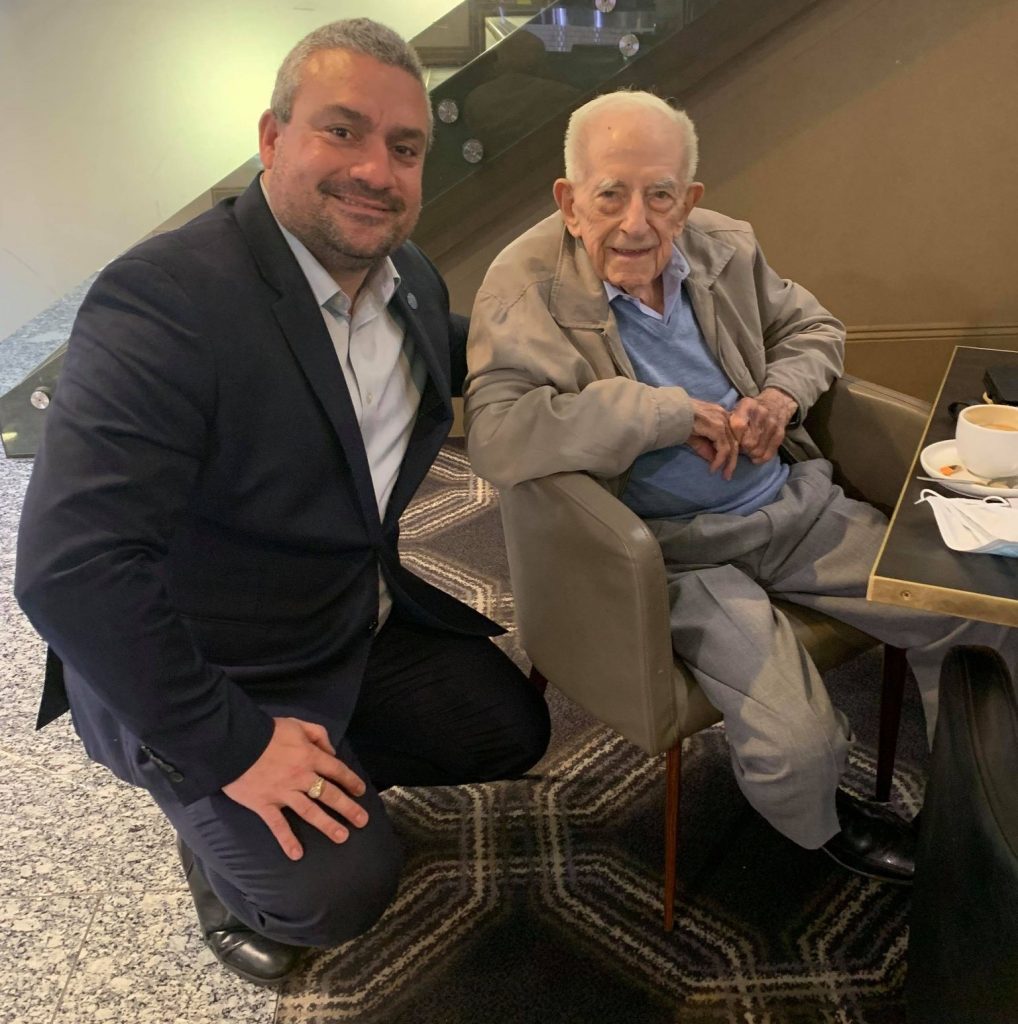
For his part, Mr Loukadellis, who always sees the war veteran on his visits to the Club, adds that all the staff love Ken as well and “care for him.”
‘I was one of the lucky ones’:
As one of the millions of Australians who fought for the country during WWII at the age of only 18, it’s no surprise people at the Club respect and honour Ken’s service daily.
Born in Yarram in Victoria on October 19, 1923, Ken was the second eldest of six children. He was boarding with an uncle in Melbourne and working in the city when he was called to serve in January 1942.
“When I was 17, I wanted to join the air force and become a pilot, but my mum wouldn’t let me. By the time I turned 18, the army grabbed you then,” Ken says.
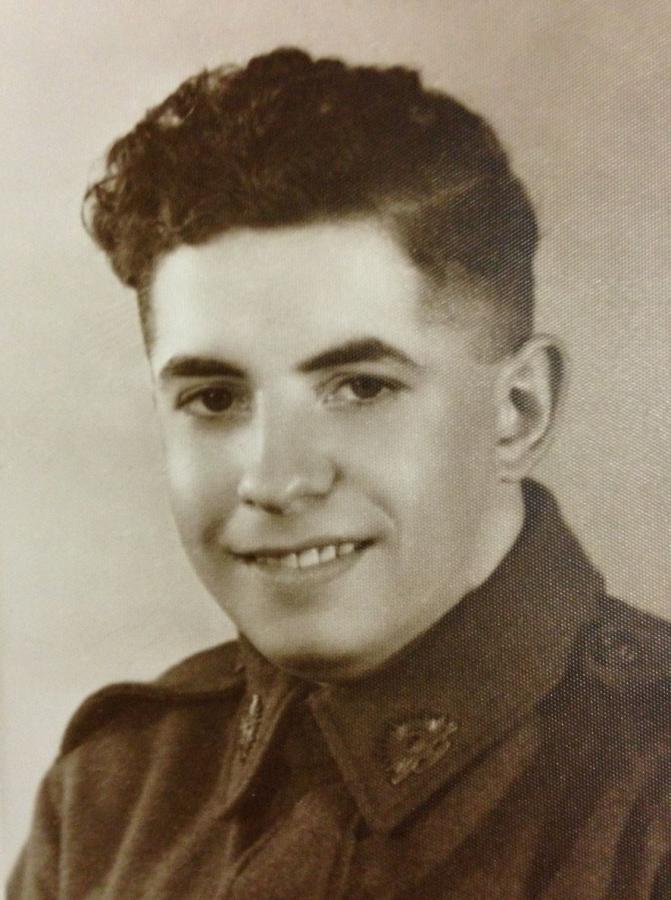
From there, Ken did military training and went on to serve with the 5th Machine Gun Battalion in the Torres Strait, specifically undertaking garrison duties on Thursday Island.
In March 1943, Ken transferred to the Australian Imperial Force and after recovering from dengue fever, he left Thursday Island with 100 other men, bound for Red Island Point, Cape York. On arrival, the men had to lay more than four miles of pipeline to help transport water to the Torres Strait Islands in the dry season.
The following year, Ken was sent to Kapooka to complete the engineers training course at the Royal Australian Engineers Training Centre. According to the Australian War Memorial, he learnt everything from squad and rifle drill, to bayonet practice and small arms training.
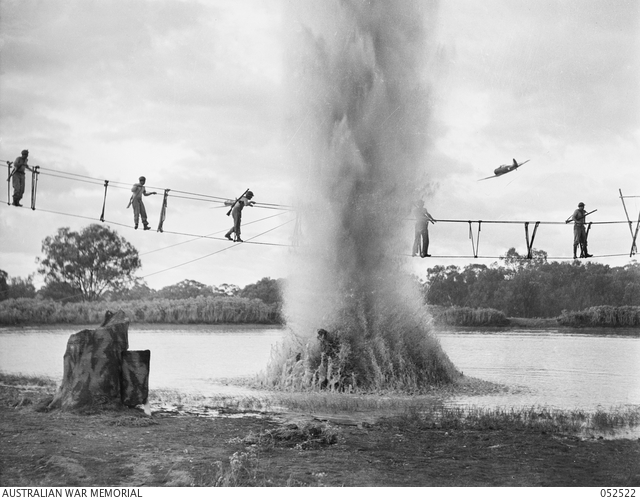
By 1945, Ken was serving as a sapper with the 2/5th Field Regiment and in July of that year, at only 21 years of age, he was at Balikpapan – the site of the last major Australian ground operation of WWII.
Codenamed Oboe Two, the landing at Balikpapan was the largest of the Oboe operations mounted by 1 Australian Corps around Borneo, and the largest ever amphibious assault involving Australian forces.
More than 75 years later and Ken remembers it all as if it was yesterday.
“It was damn awful. We had to dive off the barges into water… under fire from the ships there,” Ken says with deep sadness in his voice.
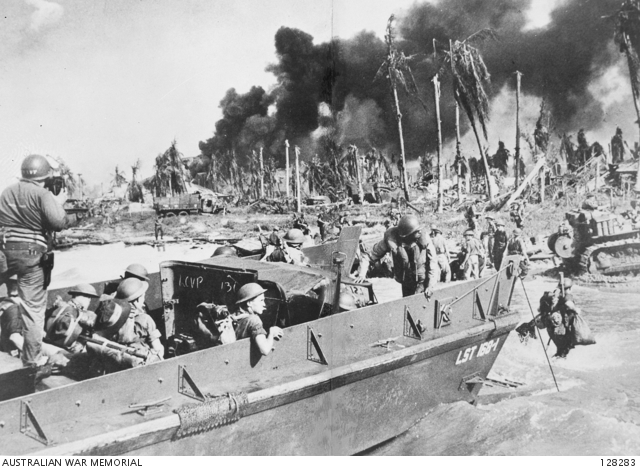
“[I remember] when the Japanese got into our camp one night and killed every second bloke in a tent.
“War is not very good at all. You’re risking your life every day of the week and of course, a lot didn’t come back. I was one of the lucky ones. A lot of my friends never came back.”
Returning to Australia:
Ken really was one of the lucky ones as he finally returned to Australia in February 1946 and was discharged from the army in July.
The veteran returned to his old job in Melbourne after the war, but later quit and went to work for the Repatriation Commission. He moved to Canberra in 1974 and worked for the renamed Department of Veterans Affairs until he retired in the 1980s.
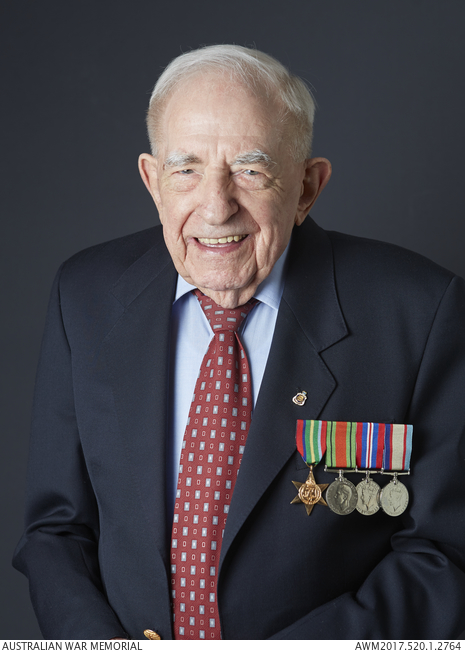
Now, he spends his days relaxing, spending time with friends and at the Club. When we conclude our chat, it’s clear he’s also very happy to reminisce about his long-standing connection and love for the Greek community in Australia.
“When the Greeks came out here after the war, it didn’t matter what they were, you’d see them on Sunday in Melbourne all dressed up in the beautiful clothes and shoes,” Ken says.
“I just love the Greek people, I always have. After the Second World War, when they all came out here, they were some of the best workers that ever came.”
Striking praise from a man who also deserves to be recognised for his contribution to Australian society.
Do you have a similar community story? Please send us a message at info@foreignlanguage.com.au.

